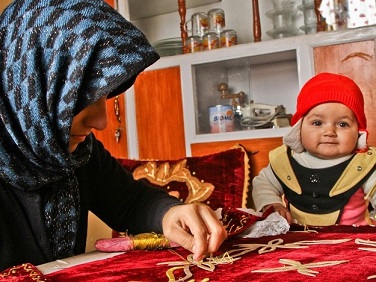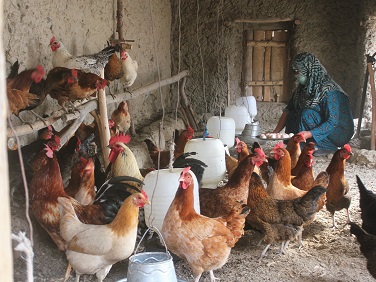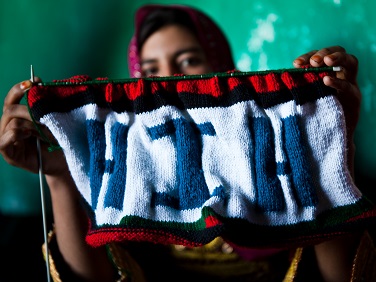Behind the headlines in Afghanistan with Dr. Kamran Hekmati, Director of Programmes, Hand in Hand Afghanistan
14 Jan 2022
 Dr. Kamran Hekmati,
Dr. Kamran Hekmati,
Director of Programmes, Hand in Hand Afghanistan
How has life changed in Mazar-i-Sharif since the Taliban arrived?
At first everyone was frightened and everything closed. But then, life carries on. The shops, markets and businesses, private schools and private universities reopened. For us in Mazar life is OK but it varies across the country.
What’s life like for women?
It is more difficult for women now. If we want to employ a woman we have to get special permission to do so and the working conditions are governed by strict rules limiting their interaction with men and their travel, unless accompanied by a male member of the family.
Are you and the team able to travel freely – especially to visit our members?
Now the Taliban have given us our license, we can operate almost normally.
In some ways things, especially travel, are easier. Now the Taliban are in control the armed roadside checkpoints have gone.
The new regime has actually opened up the countryside. For example in Chimtal district, just south of Mazar, previously it was only safe for us to operate in the 10 government controlled villages – the other 70 were ‘no go’ areas under Taliban control. Now the Taliban control the whole area we can go to all 80 villages. All we need is the funding to do so.
What about the economy?
You used not to see many people begging on the streets, but now you do.
So many people have lost their jobs – the 350,000 employed by the army are now unemployed. Although the private businesses, schools etc are open, the government operations are not. And, everything is smaller because no one has any money to spend.
But, what about the rural economy in northern Afghanistan, where you are?
The farmers aren’t affected by what’s happening in the cities. They rely on the land, livestock and weather for food and living.
They are much more worried about how they and their families will survive the winter – the drought meant the wheat and barley died in the fields this summer, as did much of the livestock.
Everywhere families are hungry.
What are we doing to help our members as famine looms this winter?
People are so hungry they cannot join our programmes until they have had something to eat, so we give every member a food package.



